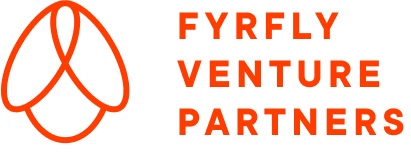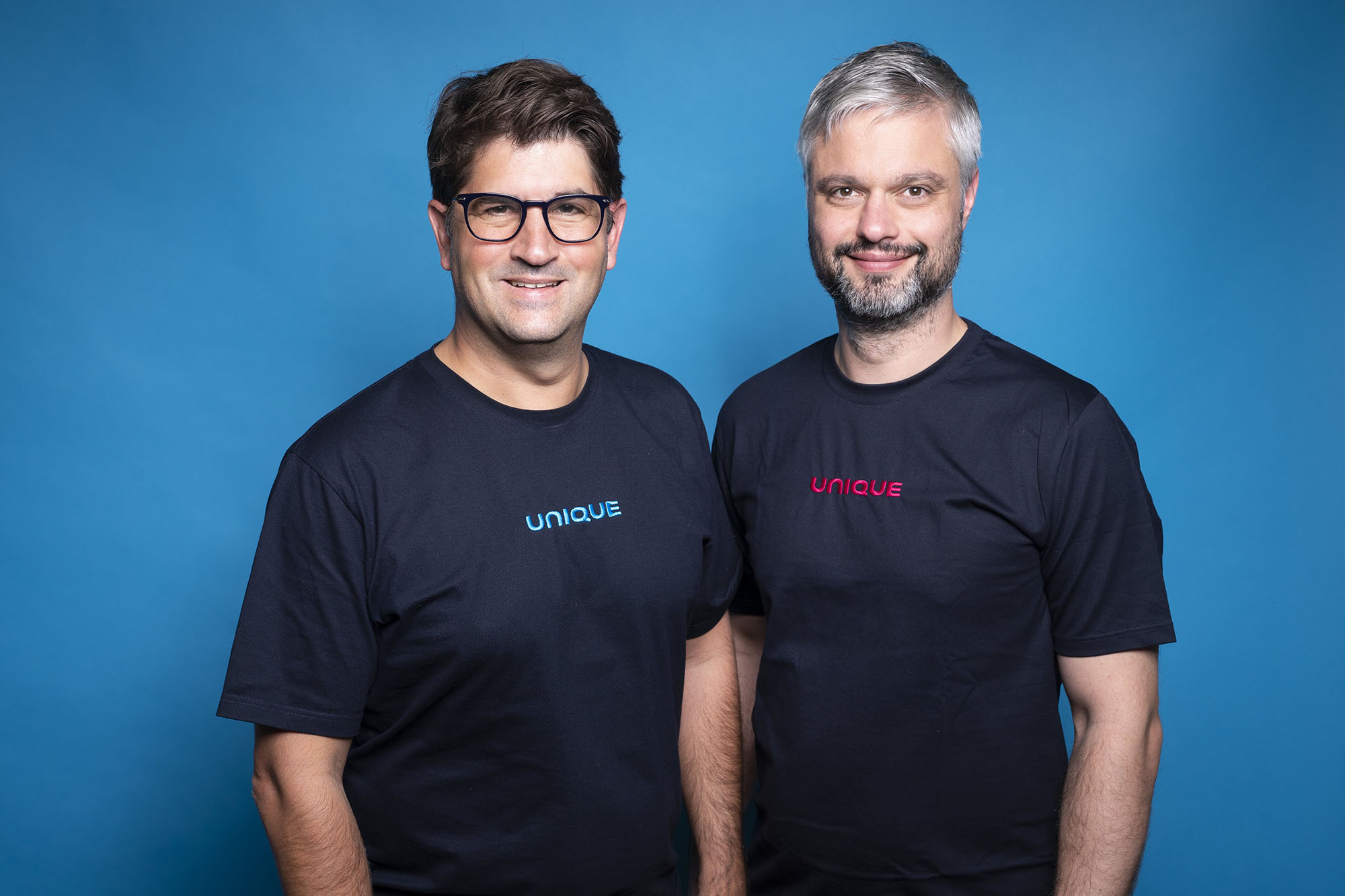After Manuel Grenacher and Andreas Hauri sold their first two companies, they decided it was time to go big and aim for an IPO. Their latest venture, Unique, is “supercharging” financial services teams with an generative AI-powered platform that automates tedious CRM updates, data entry, and compliance documentation
When ChatGPT launched in November 2022, it took almost everyone off guard—but not two co-founders in Switzerland. Over a year earlier, they’d made a big bet on generative AI.
Manuel Grenacher and Andreas Hauri, co-founders of Unique, began using AI models, including OpenAI’s old GPT-3 model, to automate administrative busywork in the financial industry. While everyone speculated about how ChatGPT might transform business, Unique was transforming it.
To date, Unique has raised over $16 million in venture funding from FYRFLY Venture Partners, “Unicorn Hunter” Daniel Gutenberg, Swiss private bank Pictet, Constantin Sturdza, and VI Partners. Unique’s clients include big names in European finance: LGT Private Banking, PostFinance, Sturdza Financial Group, and Swisscom, among others.
Two entrepreneurs raised in rural farming communities aren’t obvious agents of change for the glitzy financial space. In many ways, though, Manuel and Andreas became entrepreneurs in reaction to the inertia of the old-school world in which they grew up. If not finance, they would have upended another industry (and probably will).
Manuel and Hauri were born and raised northwest of Zurich along the border with Germany, just a few miles from one other. Andreas lived in Klingnau, a town of 3,000 people, and his father supported the family as a policeman. Manuel lived nearby in Bossenhaus, a town of just five homes, where his family owned a dairy farm turned timber operation.
Their escape from rural ennui was computing. Manuel and Andreas were fortunate to get their first computers in middle school in the early 1990s. Since no one around knew about computers, they taught themselves to do everything, including code.
Manuel and Andreas knew of each other growing up, but rarely spoke. “I was basically the nerdy computer kid at an early age,” Andreas admits. With his blue hair, Andreas seemed “a little bit weird,” remembers Manuel, who has more of a sales guy vibe. The idea that they’d go on to co-found three tech companies within 15 years would have seemed laughable then.
When Andreas arrived at the University of Applied Sciences Northwestern Switzerland in 2002, he saw Manuel driving a luxury Mercedes-Benz, which, according to Andreas, he parked in a professor’s spot. Admittedly, Andreas was impressed. How could Manuel afford that?
As a high schooler, Manuel wanted to avoid a future on the family farm. He started selling custom software to local businesses, partly to fund his university education, partly to fund his lifestyle. A Mercedes-Benz garage had paid Manuel for his CRM software with a car instead of cash.
As fellow computer science students, Manuel and Andreas not only overcame their superficial differences but developed a rapport. “At university, I realized that this nerdy guy was a super brain,” says Manuel. He convinced Andreas to work with him in his software business.
“What I found crazy about Manuel,” says Andreas, “is that he could go into a meeting somewhere and then walk out with the deal.” Then, of course, Andreas had to build what Manuel promised.
As students, they noticed that SAP customers struggled to localize its business software to the accounting, reporting, and compliance norms of their markets. So, Manuel and Andreas developed SAP add-on applications to do just that. This became their first company, Coresystems, incorporated in 2006. It evolved into a field service management platform for dispatching technicians.
Along the way, they also built a spinoff called Mila, a platform for crowdsourcing field services, which sold to Swisscom in 2017. Coresystems sold to SAP in 2018, and Manuel and Andreas joined the company as part of the deal.
SAP was a chance to recharge. The guaranteed paycheck and regular office hours were new to Manuel and Andreas. Manuel built a house and bought a boat he kept on Lake Zurich. Meanwhile, Andreas tried to launch his own startup called ambrpay, a system to enable subscription payments with cryptocurrencies.
FYRFLY’s Philipp Stauffer met with Andreas after ambrpay won a Swiss startup competition. Philipp decided not to invest as he felt the market was not ready for what ambrpay was building. ambrpay failed (“nobody pays with crypto,” remarks Andreas). Nevertheless, Philipp was impressed with Andreas’s tech savvy and creative thinking.
By 2021, three years into their corporate jobs with SAP, Manuel and Andreas were restless. That’s when Andreas said it was time to do something new together. Although they loved SAP and had never felt so financially secure, they felt constrained.
Their third venture was born on Manuel’s boat, over beers, somewhere on Lake Zurich. “In the end, Andreas forced me to get out of my comfort zone again,” says Manuel, in subtle dig.
“Sure, of course. It’s my fault,” laughs Andreas, who doesn’t seem to cope well with inaction and boredom. (He is, after all, the second most prolific reader on Goodreads Switzerland, having consumed over 1,800 audiobooks as of this writing; he also invented the first mobile karaoke iPhone app in Switzerland just because.)
The conversation on Lake Zurich fired them up again. They’d always dreamed of doing an IPO, and although they had sold two good companies, “It did not satisfy us,” says Manuel. “We wanted to build something people remember.”
They spotted an opportunity at the confluence of AI, remote work, and CRM. COVID-19 meant that sales meetings started happening almost entirely on video conferencing platforms. Meanwhile, CRMs from SAP and Salesforce remained an “empty software box,” as Manuel explains. “You have to force your employees to fill it in to get value out of it.”
The combination of remote work and tedious CRM entries meant that salespeople were spending more time on data entry at the expense of meaningful interactions with clients. And as Andreas noticed, most people are terrible at communication, especially in written form. Salespeople and account managers often turn rich conversations into choppy, impenetrable notes.
But what if they could record sales meetings and then use AI to distill and document everything that had to be entered into CRM? “You could get instant value without doing a lot,” says Manuel. “And that’s why we started Unique.”
Initially, Unique took a horizontal approach, testing to see which industries would bite. One of those industries was tech, which started shedding value and employees following the COVID-19 tech bubble. It wasn’t the fit they expected. Over time, though, Unique recognized an opportunity to verticalize into financial services—a sector where the company could provide immense value.
No industry suffered more from busywork than financial services, and no platform could reduce that workload quite like Unique. Advisors in banking, wealth management, insurance, and adjacent fields routinely spent up to 70% of their time on administrative work, like documenting things in CRM. Unique could cut that down to 30%.
With product-market fit in sight, it was time to bring on a seed investor. That’s when Andreas remembered Philipp at FYRFLY. Meanwhile, Philipp and Manuel were already in touch, having met years ago on the ski slopes in Laax at a Worldwebforum event. It was a serendipitous moment for Philipp when he learned that Manuel and Andreas are working on their third act.
Manuel, who’d spent three years working in San Francisco, liked the idea of bringing a Silicon Valley ethos to a Swiss venture. “You get so much from the competition in the Valley, you get fired up, and you don’t have this here in Switzerland,” says Manuel. “Here, everything is slow. And this has an impact on your habits and on your thinking. You simply don’t think big enough.”
Almost no one in Switzerland took Unique’s ambitions seriously. But Philipp did. He joined Unique’s seed round in December 2021. “Philipp is a person you can trust. He brings reality in,” says Manuel, adding, “he really takes care of the founders. You really can feel that he understands your perspective.”
For his part, Philipp respected that Manuel and Andreas reinvested earnings from previous ventures into their own company—something many founders avoid doing. “These are entrepreneurs who live with skin in the game and ‘walk the talk’ with their growing team,” says Philipp. “They work hard and play hard.”
The funding was well timed. When ChatGPT launched in 2022, it took Unique’s automation abilities to a new level. Their new flagship product, FinanceGPT, launched in May 2023. It generates client contact summaries before meetings, identifies stock transactions in real time, automates CRM entries, generates follow-up emails, and even analyzes meetings for pain points and upsell or cross-sell opportunities. On top of all that, it suggests next steps with action items for everybody.
Today, Unique describes itself as the platform that “supercharges” teams in the financial industry. Both married with two kids each, Manuel and Andreas insist that their wives deserve a shout out for putting up with them. (And no, Monika and Angi, they aren’t just saying that so they can work longer hours…they swear.)
With serial founders like Manuel and Andreas, Switzerland continues to punch above its weight in global technology. Moreover, Manuel and Andreas are mentoring the next generation of Swiss founders, with many former employees going on to launch their own startups. And Manuel and Andreas have no plans to slow down—at least not until they’ve rung the bell in New York.

